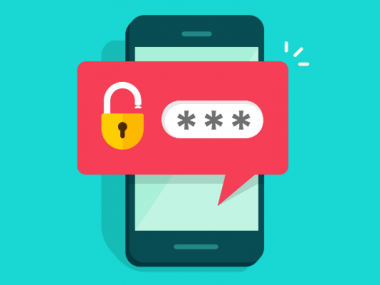How to Create and Manage Strong Passwords
Keep your information safe behind strong passwords that will keep even the most cunning hacker guessing!

I had an interesting problem the other day. I got to work and needed to fix a colleague´s office computer. She was supposed to leave the machine logged on for me, but when I sat down in front of it, I was confronted by a big, blank, locked screen. And what is more, the computer would be locked for some time as the colleague had gone on vacation. Now I could have walked away, I could have just said “Forget it,” I could have just left it until its owner returned—but where’s the fun in that? I decided it was time I put my hacking skills to the test, and guess what? I hacked a 31-character-long password in under 15 seconds. Stick around and I’ll let you in on how I pulled off this master hack!
What is your password?
First let me start off by asking a few questions: Do you use the same password for everything? Is your password “password,” or maybe “1234”? Is it your spouse’s or your child’s name? Is it your street address or the name of a beloved pet? I know I got some of you out there, so do me a favor, please listen to what I have to say today to prevent a lot of unneeded stress!
Having a good password does not mean having to memorize a jumbled string of letters, numbers, and symbols!
Passwords are used to make sure that only certain people have access to certain information. The concept of passwords is pretty simple to understand, but creating and managing strong passwords is one of those age-old technology debates. But I’ll let you in on a little secret: Having a good password does not mean having to memorize a jumbled string of letters, numbers, and symbols!
How to create strong passwords?
Say you want to create a password that is pretty strong, you first have to rule out the obvious. Don’t repeat a password that you use somewhere else, don’t use something that is easy to guess, and keep it over 10 characters.
Now these are just the basics, and generally, following these rules will prevent most people from getting your password just by chance. But say you are up against someone like yours truly? A pro can use a computer program to guess thousands if not hundreds of thousands of passwords in a second. Although this may seem incredible, the fact is, computers really aren’t that smart. They will simply try a large list of words (this is called a dictionary attack), or they will try every possible string of letters, numbers, and symbols (this is called a brute force attack).
Just to give you an example: If you had to make a 7-character-long password using only the lower case letters on a keyboard, it would be one of 8 billion possible passwords. And if you made it 8 letters long, well that would be just over 200 billion possible combinations. So if a computer could guess 1000 passwords per second, it would take about 6 years to crack your password! Of course I wouldn’t recommend just having all lowercase letters, because we all know computers are always getting faster, and what is secure today may be easy to crack tomorrow!
Your password is the only thing standing between thieves and your bank account, Facebook, email, and any other account you keep online.
It’s always important to keep in mind that your password is the only thing standing between thieves and your bank account, facebook, email, and any other account you keep online. So creating a password is one thing it’s okay to go overboard on!
The trick to creating your password
But we can do better than that. My favorite method for choosing passwords is to use a short sentence. Something like, “I love the Tech Talker podcast!” Include an exclamation point with spaces and capital letters thrown into the mix. This method creates a password that would take about 34 octillion years for a computer to crack. Plus, it is also one that is very simple for you to remember and not easily guessed by anyone else.
That’s all well and good, but you’re still probably wondering, “Okay, Eric, but how did you guess a password that was 31 characters long in 15 seconds?” Well it was as simple as checking under the mouse pad. Many people, be it at home or at work, will keep passwords written down and not so cleverly hidden near the computer. Think I’m crazy? I bet at least some of my listeners and readers have their passwords hidden under their mouse pad, keyboard, chair, desk, drawer, behind the monitor, computer, or that picture from your last vacation. Am I right?
SEE ALSO: Tech Talker’s Safe and Easy Ways to Store Your Passwords
So to avoid having your identity stolen or your information infiltrated, follow my advice and create strong unique passwords for everything. Choose passwords that are not easy to guess, and never ever tape a list with your passwords to your computer screen for the world to see.
I know what you’re thinking: In the course of your internet life, you’ve probably built up dozens of passwords, ranging from your iTunes account to your job computer, it can be next to impossible to keep them all straight. It might be tempting to keep a Word or an Excel document with a list of all your great passwords. I highly recommend against that. Instead, use a program like LastPass or KeePass to hold all of your passwords. These programs are free and will encrypt your list so you just have to remember one password to access it and forget about the rest.
To sum up, here are 5 Quick and Dirty Tips to creating and keeping a strong password:
- Use a short sentence with spaces, punctuation, and capitals.
- Don’t use the same password for everything.
- Use a program to keep track of all your passwords.
- Don’t try and hide your passwords in easy to find places around your desk.
- Keep your passwords private so that only you know them.
Remember to check the show notes for the links to the programs I mentioned in today’s podcast!





